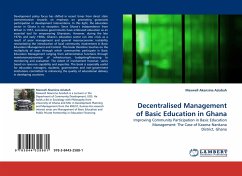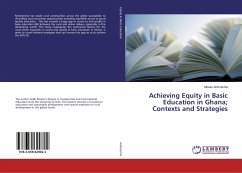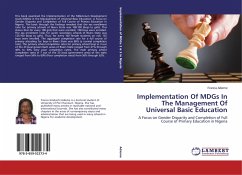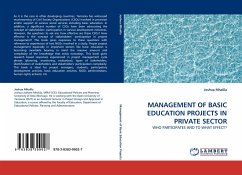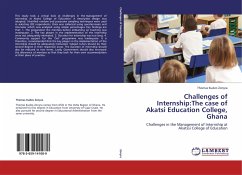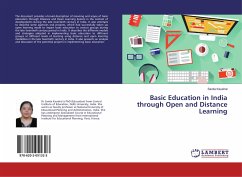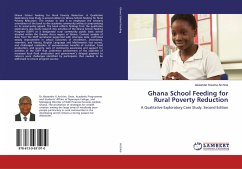Development policy focus has shifted in recent times from direct state interventionism towards an emphasis on promoting grassroots participation in development interventions. In this light, the education sector in Ghana is no exception. Since Ghana's independence from Britain in 1957, successive governments have embraced education as an essential tool for empowering Ghanaians. However, during the late 1970s and early 1980s, Ghana's education sector ran into crisis as a result of poor management and general macroeconomic instability necessitating the introduction of local community involvement in Basic Education Management and Control. This book therefore touches on the multiplicity of ways through which communities participate in Basic Education Management ranging from administrative functions through maintenance/provision of infrastructure, budgeting/financing to monitoring and evaluation. The extent of involvement however, varies based on resource capability and expertise. The book is especially useful for education managers, students, governments and non-government institutions committed to enhancing the quality of educational delivery in developing countries.
Bitte wählen Sie Ihr Anliegen aus.
Rechnungen
Retourenschein anfordern
Bestellstatus
Storno

